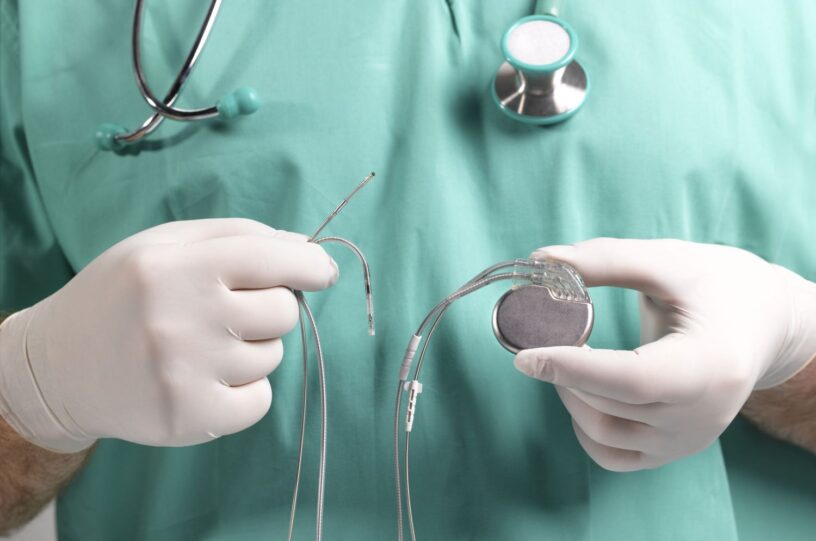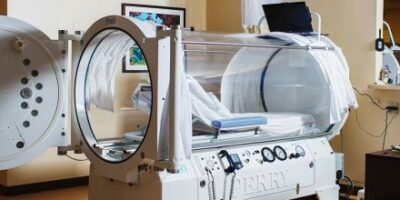The Battery for Medical Implantable Devices Market focuses on the development and supply of batteries specifically designed for use in medical devices that are implanted within the human body. These devices include pacemakers, defibrillators, neurostimulators, and drug delivery systems. The market is driven by advancements in medical technology, the increasing prevalence of chronic diseases, and the demand for innovative implantable solutions that enhance patient outcomes.
Key Factors Driving the Market
- Increasing Prevalence of Chronic Diseases:
- The rise in chronic diseases, such as cardiovascular diseases, diabetes, and neurological disorders, is leading to higher demand for implantable medical devices, which require reliable battery sources.
- Pros: A growing patient population creates a steady demand for devices that require batteries.
- Cons: Managing the longevity and performance of batteries in harsh body environments is a challenge.
- Technological Advancements in Battery Technology:
- Innovations in battery chemistry, such as lithium-ion and solid-state batteries, have improved energy density, longevity, and safety profiles.
- Pros: These advancements enhance the performance and lifespan of implantable devices, reducing the need for replacement surgeries.
- Cons: The development of new battery technologies can be costly and time-consuming.
- Growing Demand for Minimally Invasive Procedures:
- The trend toward minimally invasive surgeries is driving the adoption of smaller and more efficient implantable devices that require compact battery solutions.
- Pros: Patients benefit from reduced recovery times and lower risk of complications, increasing device acceptance.
- Cons: Smaller devices may require even more advanced battery technologies, presenting engineering challenges.
- Regulatory Approvals and Standards:
- Stricter regulations and standards for medical devices are pushing manufacturers to invest in safer and more reliable battery solutions.
- Pros: Compliance with regulatory standards enhances product credibility and marketability.
- Cons: The need for rigorous testing and validation can extend product development timelines and increase costs.
Market Challenges
- High Development Costs:
- The research, development, and manufacturing of specialized batteries for implantable devices can be costly, which may deter some manufacturers from entering the market.
- Regulatory Hurdles:
- Compliance with stringent regulatory requirements can complicate the approval process for new battery technologies and devices.
- Longevity and Reliability Concerns:
- Ensuring that batteries perform reliably over long periods, often in challenging environments within the body, is a critical concern for manufacturers.
- Competition from Alternative Solutions:
- Emerging technologies, such as wireless power transfer and energy harvesting, may present competition to traditional battery solutions.
Market Trends
- Research into Sustainable and Biocompatible Batteries:
- Increasing focus on developing eco-friendly and biocompatible battery materials to minimize environmental impact and enhance patient safety.
- Integration of Smart Technologies:
- The trend towards smart medical devices with built-in monitoring and communication capabilities is driving innovation in battery technology to support increased functionality.
- Shift Towards Wireless Technologies:
- The development of wireless power solutions and energy harvesting technologies aims to reduce the dependency on batteries, enhancing patient comfort and device longevity.
Future Outlook
The battery for medical implantable devices market is anticipated to experience steady growth, driven by the increasing prevalence of chronic diseases and advancements in battery technology. While challenges such as high development costs and regulatory hurdles exist, the ongoing focus on innovation, sustainability, and patient-centric solutions will likely shape the future landscape of the market. Enhanced battery performance and longevity will continue to be critical factors influencing the success of implantable medical devices.
Click Here, To Get Free Sample Report https://stringentdatalytics.com/sample-request/battery-for-medical-implantable-devices-market/16028/
Market Segmentations:
Global Battery for Medical Implantable Devices Market: By Company
EaglePicher Technologies
EnerSys
Quallion
Excellatron
Integer
Global Battery for Medical Implantable Devices Market: By Type
Lithium Batteries
Nickel-Metal Hydride Batteries
Zinc-air Batteries
Global Battery for Medical Implantable Devices Market: By Application
Hospitals and Nursing Homes
Clinics
Diagnostic Centers
Home Care
Global Battery for Medical Implantable Devices Market: Regional Analysis
The regional analysis of the global Battery for Medical Implantable Devices market provides insights into the market’s performance across different regions of the world. The analysis is based on recent and future trends and includes market forecast for the prediction period. The countries covered in the regional analysis of the Battery for Medical Implantable Devices market report are as follows:
North America: The North America region includes the U.S., Canada, and Mexico. The U.S. is the largest market for Cold-chain Pharma in this region, followed by Canada and Mexico. The market growth in this region is primarily driven by the presence of key market players and the increasing demand for the product.
Europe: The Europe region includes Germany, France, U.K., Russia, Italy, Spain, Turkey, Netherlands, Switzerland, Belgium, and Rest of Europe. Germany is the largest market for Cold-chain Pharma in this region, followed by the U.K. and France. The market growth in this region is driven by the increasing demand for the product in the automotive and aerospace sectors.
Asia-Pacific: The Asia-Pacific region includes Singapore, Malaysia, Australia, Thailand, Indonesia, Philippines, China, Japan, India, South Korea, and Rest of Asia-Pacific. China is the largest market for Cold-chain Pharma in this region, followed by Japan and India. The market growth in this region is driven by the increasing adoption of the product in various end-use industries, such as automotive, aerospace, and construction.
Middle East and Africa: The Middle East and Africa region includes Saudi Arabia, U.A.E, South Africa, Egypt, Israel, and Rest of Middle East and Africa. The market growth in this region is driven by the increasing demand for the product in the aerospace and defense sectors.
South America: The South America region includes Argentina, Brazil, and Rest of South America. Brazil is the largest market for Cold-chain Pharma in this region, followed by Argentina. The market growth in this region is primarily driven by the increasing demand for the product in the automotive sector.
Click Here, To Buy Premium Report https://stringentdatalytics.com/purchase/battery-for-medical-implantable-devices-market/16028/?license=single
About Stringent Datalytics
Stringent Datalytics offers both custom and syndicated market research reports. Custom market research reports are tailored to a specific client’s needs and requirements. These reports provide unique insights into a particular industry or market segment and can help businesses make informed decisions about their strategies and operations.
Syndicated market research reports, on the other hand, are pre-existing reports that are available for purchase by multiple clients. These reports are often produced on a regular basis, such as annually or quarterly, and cover a broad range of industries and market segments. Syndicated reports provide clients with insights into industry trends, market sizes, and competitive landscapes. By offering both custom and syndicated reports, Stringent Datalytics can provide clients with a range of market research solutions that can be customized to their specific needs.
Contact Us
Stringent Datalytics
Contact No- +1 346 666 6655
Email Id- sales@stringentdatalytics.com
Web- https://stringentdatalytics.com/




Leave a Reply